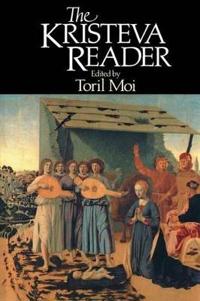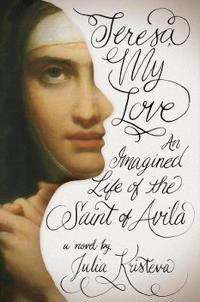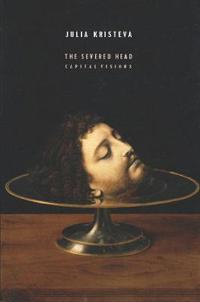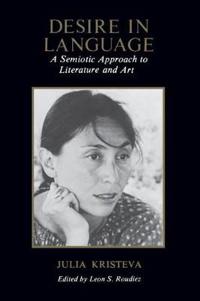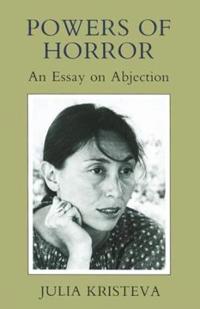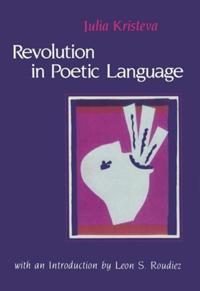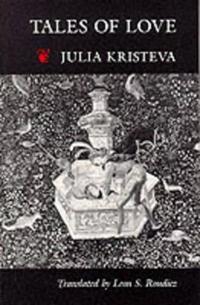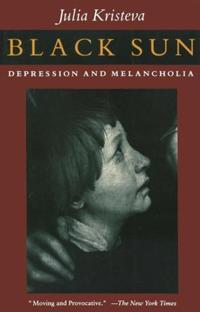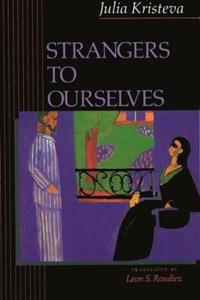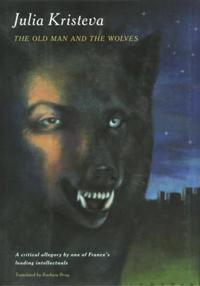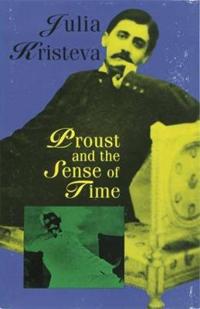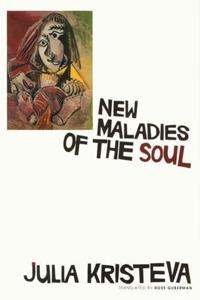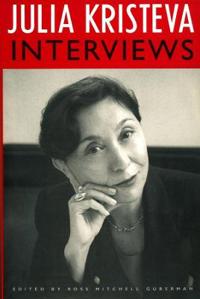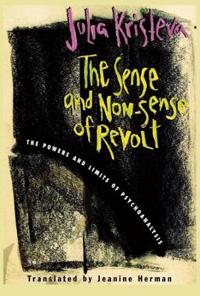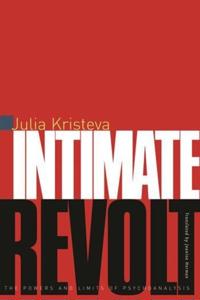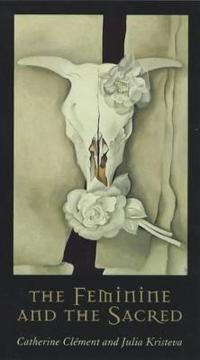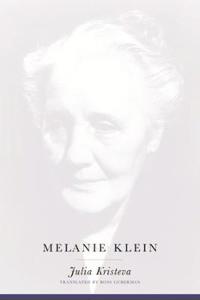A Kristeva Reader (Pocket)
avJulia Kristeva
ISBN: 9780231063258 - UTGIVEN: 1986-11An easily accessible introduction to Kristeva's work in English. The essays have been selected as representative of the three main areas of Kristeva's writing--semiotics, psychoanalysis, and political theory--and are each prefaced by a clear, instructive introduction. For beginners or those familiar[...]
Teresa, My Love (Inbunden)
avJulia Kristeva, Lorna Scott (TRN) Fox, Julia Kristeva
ISBN: 9780231149600 - UTGIVEN: 2014-11Mixing fiction, history, psychoanalysis, and personal fantasy, Teresa, My Love turns a past world into a modern marvel, following Sylvia Leclercq, a French psychoanalyst, academic, and incurable insomniac, as she falls for the sixteenth-century Saint Teresa of Avila and becomes consumed with chartin[...]
The Severed Head (Pocket)
avJulia Kristeva, Jody (TRN) Gladding, Julia Kristeva
ISBN: 9780231157216 - UTGIVEN: 2014-02Informed by a provocative exhibition at the Louvre curated by the author, The Severed Head unpacks artistic representations of severed heads from the Paleolithic period to the present. Surveying paintings, sculptures, and drawings, Julia Kristeva turns her famed critical eye to a study of the head [...]
Hannah Arendt (Inbunden)
avJulia Kristeva, Frank (TRN) Collins, Julia Kristeva
ISBN: 9780802035219 - UTGIVEN: 2000-06In this volume, based on the series of Alexander Lectures she delivered at the University of Toronto, Julia Kristeva explores the philosophical aspects of Hannah Arendt's work: her understanding of such concepts as language, self, body, political space, and life. Kristeva's aim is to clarify contra[...]
Desire in Language (Häftad)
avJulia Kristeva
ISBN: 9780231048071 - UTGIVEN: 198204Desire in Language traces the path of an investigation, extending over a period of ten years, into the semiotics of literature and the arts. But the essays of Julia Kristeva in this volume, though they often deal with literature and art, do not amount to either "literary criticism" or "art criticism[...]
Revolution in Poetic Language (Häftad)
avJulia Kristeva
ISBN: 9780231056434 - UTGIVEN: 198412-- Alice Jardine, Harvard University
Tales of Love (Häftad)
avJulia Kristeva
ISBN: 9780231060257 - UTGIVEN: 198903Her analysis deals with the role of narcissism and idealization in the formation of a love object. She accounts for the role of the death drive by coining the term "love/hate."[...]
Language: The Unknown: An Initiation into Linguistics (Pocket)
avJulia Kristeva, Anne M. Menke
ISBN: 9780231061070 - UTGIVEN: 1991-11-18Black Sun (Häftad)
avJulia Kristeva
ISBN: 9780231067072 - UTGIVEN: 199203In Black Sun, Julia Kristeva addresses the subject of melancholia, examining this phenomenon in the context of art, literature, philosophy, the history of religion and culture, as well as psychoanalysis. She describes the depressive as one who perceives the sense of self as a crucial pursuit and a [...]
Strangers to Ourselves (Häftad)
avJulia Kristeva
ISBN: 9780231071574 - UTGIVEN: 199106This book is concerned with the notion of the "stranger" -the foreigner, outsider, or alien in a country and society not their own- as well as the notion of strangeness within the self -a person's deep sense of being, as distinct from outside appearance and their conscious idea of self. Kristeva be[...]
The Old Man and the Wolves (Inbunden)
avJulia Kristeva
ISBN: 9780231080200 - UTGIVEN: 199410-- "Publishers Weekly"
Proust and the Sense of Time (Inbunden)
avJulia Kristeva
ISBN: 9780231084789 - UTGIVEN: 199310Noted literary critic, psychoanalyst, and theorist Julia Kristeva presents a thoroughly original and compelling reading of Proust's Remembrance of Things Past, just delivered at the 1992 T.S. Eliot Memorial Lectures at Canterbury. Kristeva's first essay, "Proust and Time Embodied," takes a broadly [...]
New Maladies of the Soul (Häftad)
avJulia Kristeva
ISBN: 9780231099837 - UTGIVEN: 199710These days, who still has a soul? asks Julia Kristeva in her psychoanalytic exploration, New Maladies of the Soul. Hailed by Peter Brooks in the New York Times as "a critic of great psychoanalytic insight," Kristeva reveals to readers a new kind of patient, symptomatic of an age of political uphea[...]
Julia Kristeva Interviews (Häftad)
avFrida Edman
ISBN: 9780231104876 - UTGIVEN: 199609A collection of 22 interviews and one personal essay, Julia Kristeva Interviews presents an intimate and accessible portrait of one of France's most important critical thinkers and intellectual personalities.[...]
The Sense and Non-Sense of Revolt (Häftad)
avJulia Kristeva
ISBN: 9780231109970 - UTGIVEN: 200112Linguist, psychoanalyst, and cultural theorist, Julia Kristeva is one of the most influential and prolific thinkers of our time. Her writings have broken new ground in the study of the self, the mind, and the ways in which we communicate through language. Her work is unique in that it skillfully bri[...]
Intimate Revolt: The Powers and Limits of Psychoanalysis (Övrig)
avJulia Kristeva
ISBN: 9780231114141 - UTGIVEN: 2002-03-28Julia Kristeva, herself a product of the famous May '68 Paris student uprising, has long been fascinated by the concept of rebellion and revolution. Psychoanalysts believe that rebellion guarantees our independence and creative capacities, but is revolution still possible? Confronted with the cultur[...]
Intimate Revolt (Häftad)
avJulia Kristeva
ISBN: 9780231114158 - UTGIVEN: 200308Julia Kristeva, herself a product of the famous May '68 Paris student uprising, has long been fascinated by the concept of rebellion and revolution. Psychoanalysts believe that rebellion guarantees our independence and creative capacities, but is revolution still possible? Confronted with the cultur[...]
The Feminine and the Sacred (Häftad)
avCatherine Clement, Julia Kristeva
ISBN: 9780231115797 - UTGIVEN: 200303In November 1996, Catherine Clement and Julia Kristeva began a correspondence exploring the subject of the sacred. In this collection of those letters Catherine Clement approaches the topic from an anthropologist's point of view while Julia Kristeva responds from a psychoanalytic perspective. Their [...]
Hannah Arendt (Häftad)
avJulia Kristeva
ISBN: 9780231121033 - UTGIVEN: 200306Twenty-five years after her death, we are still coming to terms with the controversial figure of Hannah Arendt. Interlacing the life and work of this seminal twentieth-century philosopher, Julia Kristeva provides us with an elegant, sophisticated biography brimming with historical and philosophical [...]
Melanie Klein (Övrig)
avJulia Kristeva
ISBN: 9780231122849 - UTGIVEN: 2001-12-05To the renowned psychoanalyst, philosopher, and linguist Julia Kristeva, Melanie Klein (1882--1960) was the most original innovator, male or female, in the psychoanalytic arena. Klein pioneered psychoanalytic practice with children and made major contributions to our understanding of both psychosis [...]
Melanie Klein (Häftad)
avJulia Kristeva
ISBN: 9780231122856 - UTGIVEN: 200409To the renowned psychoanalyst, philosopher, and linguist Julia Kristeva, Melanie Klein (1882--1960) was the most original innovator, male or female, in the psychoanalytic arena. Klein pioneered psychoanalytic practice with children and made major contributions to our understanding of both psychosis [...]

